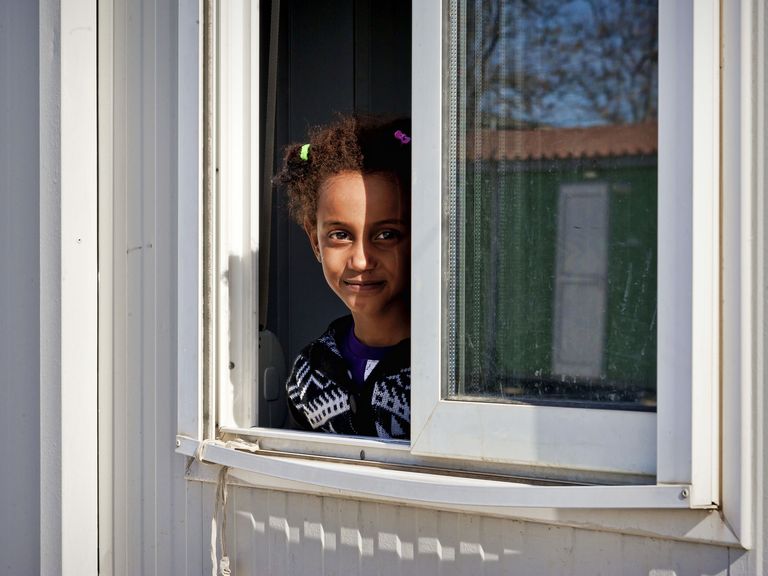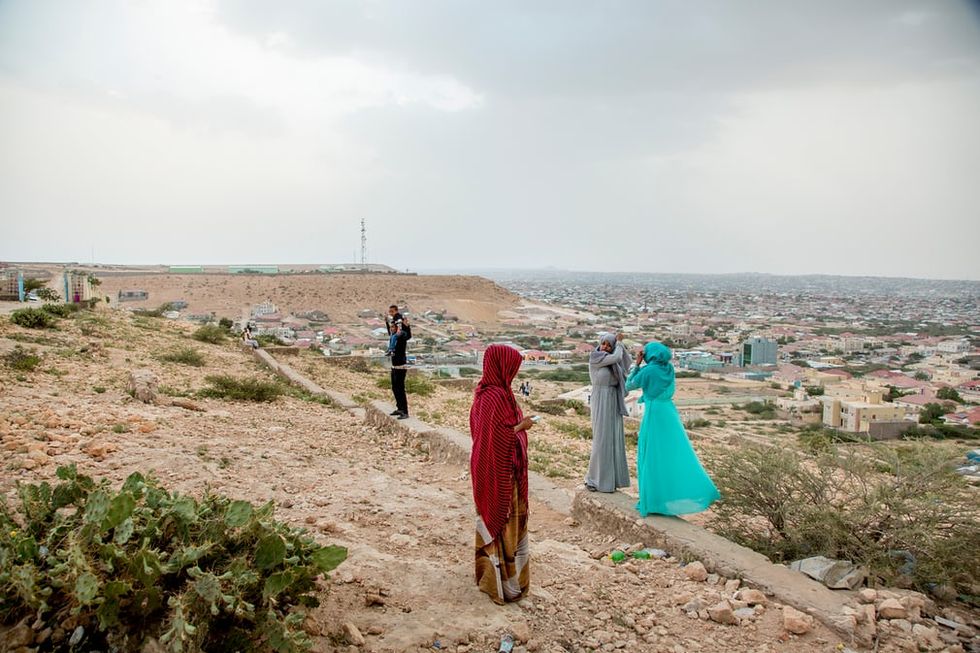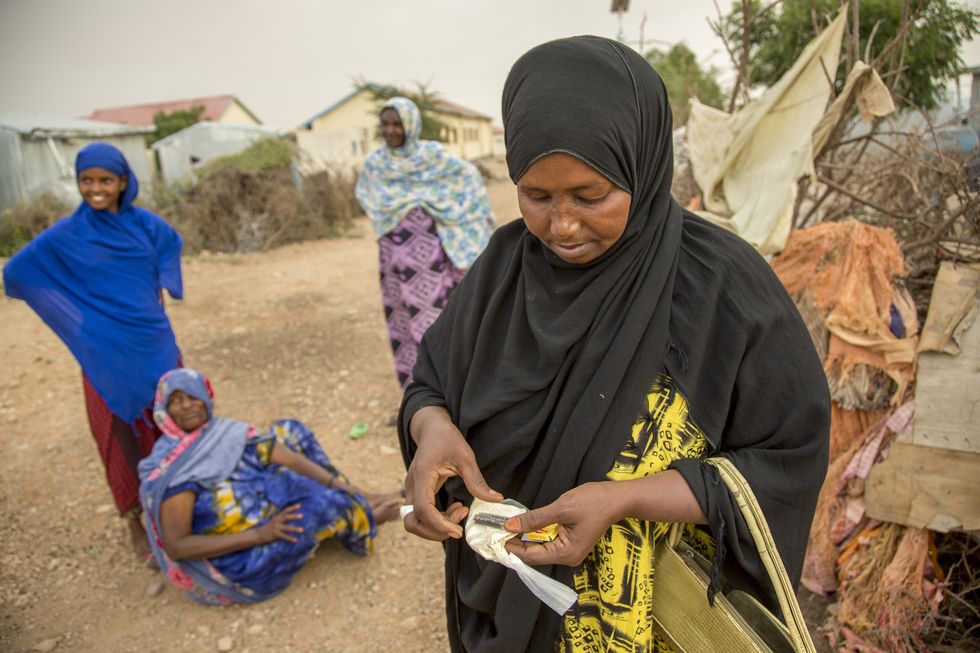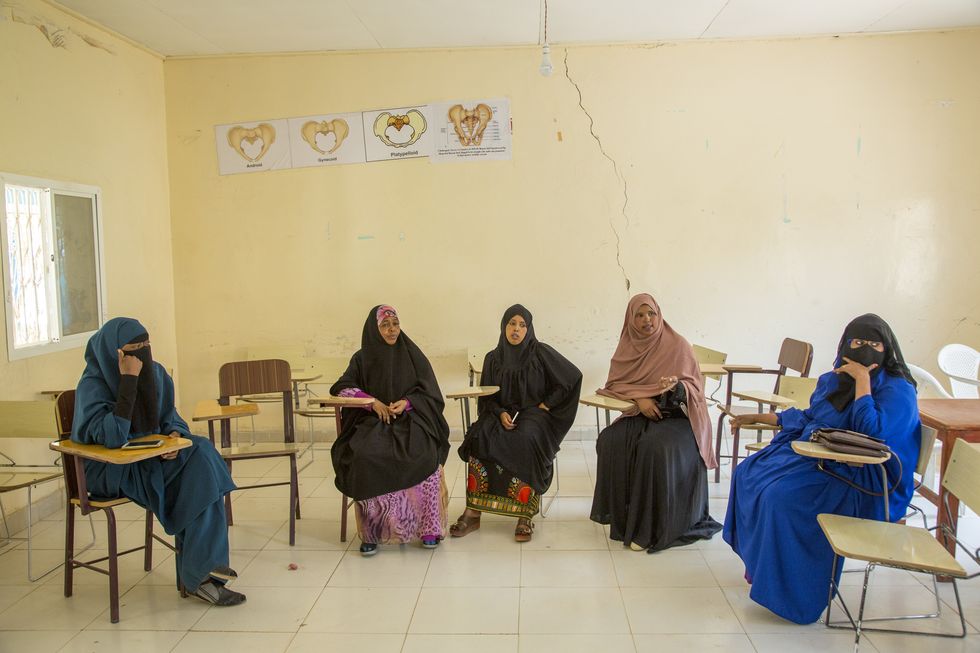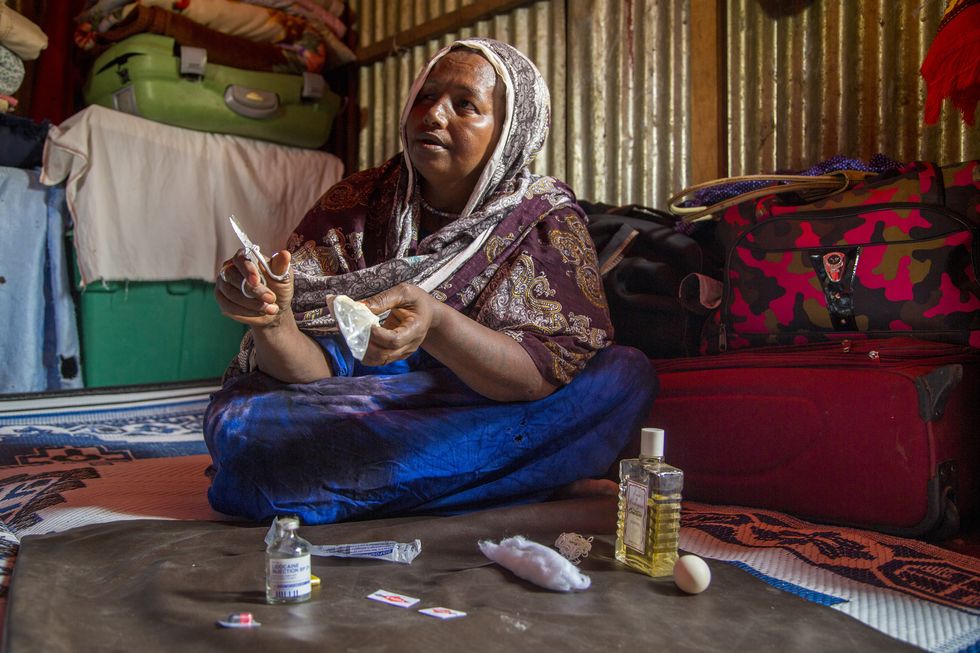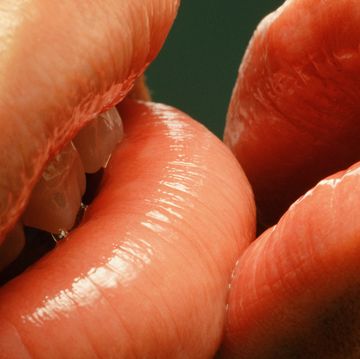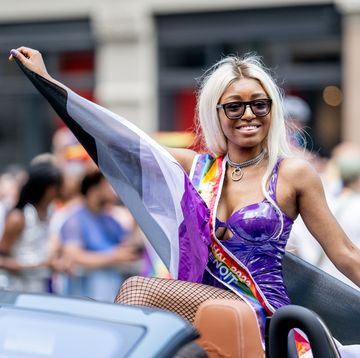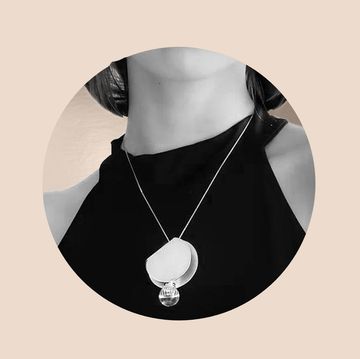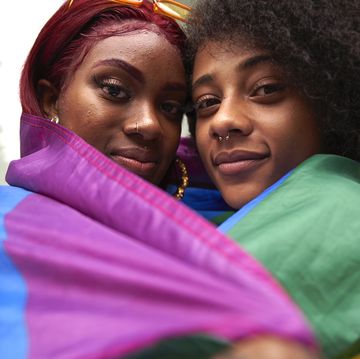After Sophia* was cut, her legs were fastened together and she was told not to move.
In her rural Somali community, however, animals are free to roam and out of nowhere an ox charged her direction. Despite the searing pain, she ran.
The then-9-year-old fell to the ground and started to bleed. Her stitches had reopened. Sophia's mother, Lesha*, came rushing over, saw her daughter on the floor, and dragged the little girl back to their house – an area designated for female circumcision. Clearly something had gone wrong the first time round. She asked the cutter who had performed the original procedure to do it again.
The result?
Sophia wasn't just mutilated once, but twice, before her tenth birthday.
'I was terrified,' she tells ELLE, 'but I was too young to do anything about it.'
In Somalia, 98% of women and girls between 15 and 49 have had their genitals forcibly mutilated. Female genital mutilation (FGM) is a procedure that intentionally injures or alters young girl's genital organs for non-medical reasons. The procedure also comes with a whole host of risks, including childbirth complications, urinary tract infections and even death.
Some, like Sophia, were cut in their birth place. Yet the NHS recorded more than 5,000 new cases of FGM in England this year, and while a third were born in Somalia like Sophia, some 112 individuals were UK-born nationals.
The statistics highlight what FGM campaigners are sadly already very familiar with: 'cutting season.'
During the months of July, August and September, thousands of girls – especially from Europe and America – are sent overseas for what's sold to them as a 'rite of passage.'
Migrant families, often traveling with their young daughters during summer holidays to their native countries – most commonly in Guinea, Nigeria and Somalia – have the procedure performed at grave risk. The break from school means they have time to undergo, and recover, from FGM.
'This is the peak season,' Asha Ali Ibrahim, 41, told the United Nations Population Fund (UNFPA), in a recent interview. She has been performing female genital mutilation on girls in Diaami, Hargeisa and other parts of Somalia since 1997.
Yet survivors are often shamed into silence. Girls and women are told to never mention what happened, and that doing so will humiliate the family. They're also taught to never look at or touch their genitals. In many cases, women who were cut very young don't even know they've been mutilated.
In Sophia's case, her mother filled her in a year later. Now 20, she can't recall the event vividly, but details begin to bubble to the surface as we talk.
'My mother invited a woman to our house, the person who was doing the mutilation, along with the village neighbours,' she explains. 'They used a rope to tie me down so I couldn't move. I couldn't see much because there were a lot of women in the room – maybe eight or nine – but they had a blade which they used to cut me. The whole thing took about an hour.'
She says they 'sliced off pieces off her flesh' and that she could then see them lying on the ground.
Sophia was subjected to what is defined by the World Health Organization (WHO) as 'type three' mutilation. Essentially, her labia were cut off and she was stitched together, leaving a tiny matchstick-sized hole.
Now a student, she lives in Hargeisa – a town 90km west from the rural Idhanka village in which she grew up – with her Aunt. She moved there for two reasons: better education and, due to the after effects of FGM, much-needed access to health care services.
'Every time I go to the toilet and every month, during my period, I feel pain,' she explains. 'There's a lot of pressure and discomfort. It's not only in my vagina area but in my back and waist area, too. I get sick a lot, and usually stay at home because I can't move around easily.'
On top of the physical pain, Sophia's relationship with Lesha, her mother, has also suffered. They talk on the phone, and she visits Sophia once every three months, but it's complicated.
'When I talk about the problems I have been through [as a result of the procedure] she tells me it was good for me. She was cut, and made the decision I should also be cut, but still to this day believes she made the right decision. My mother thinks FGM is a good and necessary thing.'
How does that make her feel?
'Very sad,' she says. 'I don't think my mother cares about me that much. Whenever I have an issue, I consult with my Aunt. When I fell down, after the ox ran at me, my Mother wasn't concerned about me or the bleeding – she just cared about the stitches. I was crying and she still didn't seem particularly concerned. I'm not sure I'll ever be able to forgive her.'
Herein lies the problem: FGM is so difficult to challenge because its grip on the culture is steadfast. Parents won't risk complaining because it can result in being ostracised, and FGM is often practiced even when it's known to inflict harm upon girls, because families think it will increase their respect within the community.
Sophia's village in Somalia, and others like it, also support female genital mutilation because it keeps girls from experiencing sexual pleasure. There is a perception that intact girls are dirty and by controlling their libido, you can control them, too. In some cases, it's a prerequisite for marriage. The goal is to prevent them from having pre-marital sex so they'll remain 'pure' for their wedding day.
'The future husband wants to open your stitches,' explains Adam Farah, the UNFPA Acting Head of Office in Hargeisa, almost matter-of-factly.
Things are, however, slowly changing. More and more FGM survivors are courageously speaking out, and male relatives who hadn't even been aware of the practice are also taking a stand. A recent Change.org campaign launched by over a dozen Dawoodi Bohra survivors in India has over 50,000 signatures while Safe Hands for Girls – 'a youth-powered movement in Gambia' – is going from strength to strength.
The UNFPA, in partnership with UNICEF, have been working local government, health workers, organisations, as well as youth activists since 2014 to empower communities to abandon the practice. Their main approach is open discussion, whether that's with parents, religious leaders, young people or newly graduated midwives, to help them convey the message to their respective communities and families.
As the largest global programme addressing female genital mutilation, it's proving a success: in 2016, more than 1.5 million girls and women received services for protection and care related to FGM/C, which brings the total to nearly 2.4 million.
For the UK, it has been illegal to carry out FGM here since 1985 (not actually that long ago), but so far there has not been a single successful prosecution.
And a case of FGM is either discovered or treated at a medical appointment in England every hour, according to analysis of NHS statistics by a charity. Between April 2016 to March 2017, there were 6,080 newly recorded cases, 1,229 of which the procedures occurred in Africa and 57 occurred in the UK (though few women actually report the country in which they had the procedure, so those figures are likely higher).
But FGM will only end if it is tackled globally, from the villages of Sierra Leone to the classrooms of Britain. That's why Sophia would also like to educate women and girls about the dangers from her small Somali town.
Or rather, educate the parents: 'The girls have no power in this situation. I would like to tell the people who are meant to be looking after their children to stop.'
At 20, she's not-yet married, but is nervous about her future husband because she will need to be re-cut in order to have children. 'I don't really want to think about it,' she says.
For now, she's focused on school. Ask her what her favourite subject is, however, and it's a surprisingly bittersweet reminder of her past experience: 'I love biology,' she says. In fact, Sophia hopes to become a doctor one day to 'completely eradicate' FGM - despite the 'huge' medical costs.
But it's her attitude towards the next generation of girls that is perhaps by far the biggest indicator of change.
'If I do have children, there is no way I will take them to an FGM clinic,' she says. 'I don't want my daughters to experience the pain I have endured. I want them to be free.'
*Names have been changed.
Read more about the UNFPA/UNICEF's joint programme to combat FGM in 17 countries here.

